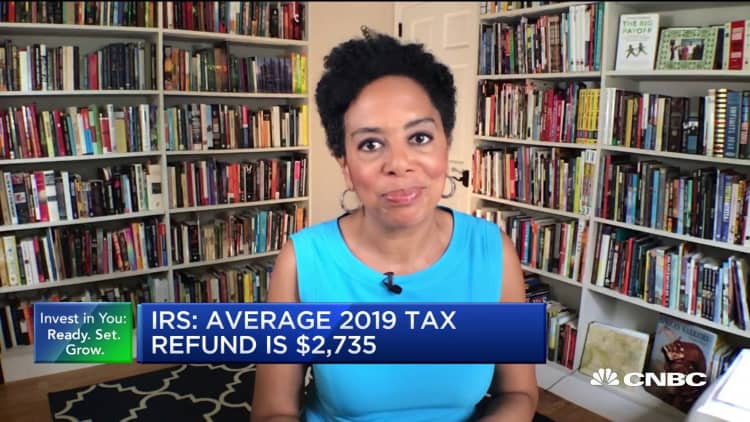With Tax Day just around the corner, many Americans are busy gathering their paperwork and filing their forms before the new July 15 deadline. Once that's completed, then it's all about waiting for your refund check to arrive.
This year, some Americans will actually receive two checks related to their taxes. One for their refund and a second comprised of the interest on that payment, the IRS announced last month.
The IRS generally has to pay interest on payments that are later than 45 days. But with the IRS extending the tax deadline from April 15 to July 15 because of the coronavirus pandemic, that has been suspended. Instead, the agency announced it would pay out the interest on refunds issued after the original filing deadline, with interest accruing between April 15 and the day the refund is issued.
"If you filed after April 15th and you're getting a refund, then you will get that interest [payment]," Lisa Greene-Lewis, certified public accountant and tax expert at TurboTax, tells CNBC Make It.
Those interest payments will likely come in the form of a second check. "Interest payments may be received separately from the refund," the IRS said in a statement.
For refunds issued during the second quarter, which ended June 30, the IRS will pay 5% interest, compounded daily. If your refund is issued between July 1 and September 30, the IRS will pay 3% interest, compounded daily.
Most Americans won't be receiving huge interest checks. The average refund issued as of July 3 was $2,762, according to the IRS. The vast majority of Americans that e-file their federal income taxes and opt to get their refunds via direct deposit have their refunds processed within 21 days. Those who mail in their taxes or get their refund via a check can expect a slightly longer processing time.
That means if you file your taxes between now and Tax Day, the interest payment for an average refund will only amount to roughly $27 if it's processed in a timely fashion. "It's not a huge amount," Greene-Lewis says of the interest payments most Americans can expect. Plus, that interest is taxable income, she adds.
While the few extra bucks may be nice, the refund is the important aspect, especially since millions of Americans have taken a financial hit during the pandemic, Greene-Lewis says. "With what's going on right now, having the refund...could really help."
Because it's a difficult time for many Americans, Greene-Lewis expects many people will use their refund to pay bills. But if you can, put the money toward your emergency fund, use it to bolster your retirement savings or pay down debt, she recommends.
Having some emergency savings can help you avoid going into debt. "You want to put some [money] aside so if your car breaks down, you don't have to use a credit card or something like that," Greene-Lewis says.
Financial experts usually recommend that you have three to six months worth of living expenses saved up to help cover emergencies, such as car or home repairs, as well as to help take care of living expenses if you lose your job. While that can sound like a big number, using your tax refund to fund that savings pot is a good way to get a jump-start on your goal.
Check out: The best credit cards of 2020 could earn you over $1,000 in 5 years
Don't miss: You only have a few days left to make 2019 contributions to your IRA—here's what you should know



